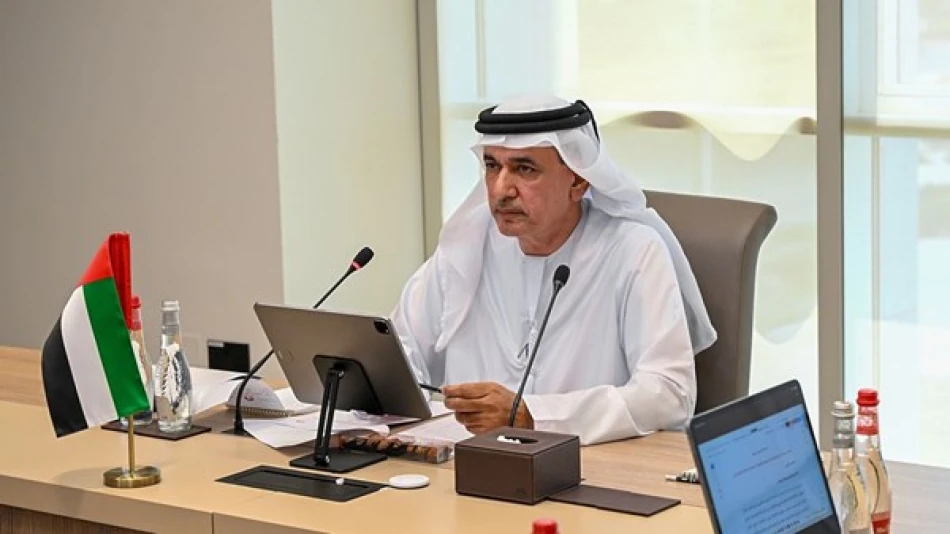
UAE Joins Gulf Coordination Meeting for 39th Session of Arab Parliamentary Union Executive Committee
Gulf Legislative Bodies Coordinate Strategy Ahead of Major Arab Parliamentary Union Reforms
Gulf Cooperation Council legislative bodies are aligning their positions on significant institutional reforms within the Arab Parliamentary Union, as the organization prepares to address mounting financial pressures and modernize its governance structures. The coordination comes ahead of a crucial September meeting in Cairo that could reshape how Arab parliaments collaborate on regional issues.
Financial Crisis Forces Institutional Reckoning
The Arab Parliamentary Union faces a critical juncture as member states seek debt relief from their financial obligations to the organization. Sultan bin Yaqoub Al Zaabi, representing the UAE's Federal National Council, participated in a virtual coordination meeting for Gulf legislative councils to prepare for the union's 39th Executive Committee session scheduled for September 9 in Cairo.
The temporary financial committee's report on debt forgiveness requests signals deeper budgetary challenges that have plagued regional organizations across the Middle East. Similar financial strains have affected the Arab League and other pan-Arab institutions, reflecting broader economic pressures on member states following years of regional conflicts and the COVID-19 pandemic's economic impact.
Governance Modernization on the Agenda
Award System and Voting Mechanisms Under Review
The meeting addressed comprehensive reforms to the Arab Parliamentary Excellence Award regulations and the union's internal bylaws. These changes suggest an effort to enhance the organization's relevance and effectiveness in promoting legislative best practices across the Arab world.
Particularly significant is the proposed amendment to emergency voting procedures during the International Parliamentary Union's General Assembly. This reform could strengthen Arab parliamentary coordination on urgent international issues, potentially giving the bloc more influence in global legislative forums.
Strategic Positioning in Global Parliamentary Networks
The focus on International Parliamentary Union procedures reflects a broader trend among regional parliamentary groups to maximize their influence within global governance structures. Similar coordination efforts have been observed among African, European, and Latin American parliamentary unions, as regional blocs compete for influence in international decision-making processes.
Gulf States Leading Reform Efforts
The Gulf states' proactive coordination mirrors their broader diplomatic strategy of institutional leadership within Arab organizations. The UAE's prominent role aligns with its recent diplomatic initiatives and its positioning as a regional hub for international organizations and conferences.
This institutional engagement contrasts sharply with the fragmentation seen in other Arab regional bodies, where political divisions have often paralyzed decision-making. The Gulf states' unified approach could provide a stabilizing influence within the Arab Parliamentary Union, particularly as the organization navigates financial difficulties and seeks to maintain relevance in a rapidly changing regional landscape.
The September Cairo meeting will test whether these coordinated reform efforts can revitalize an institution that has struggled to maintain influence amid regional political upheavals and competing national priorities.
Most Viewed News

 Layla Al Mansoori
Layla Al Mansoori






